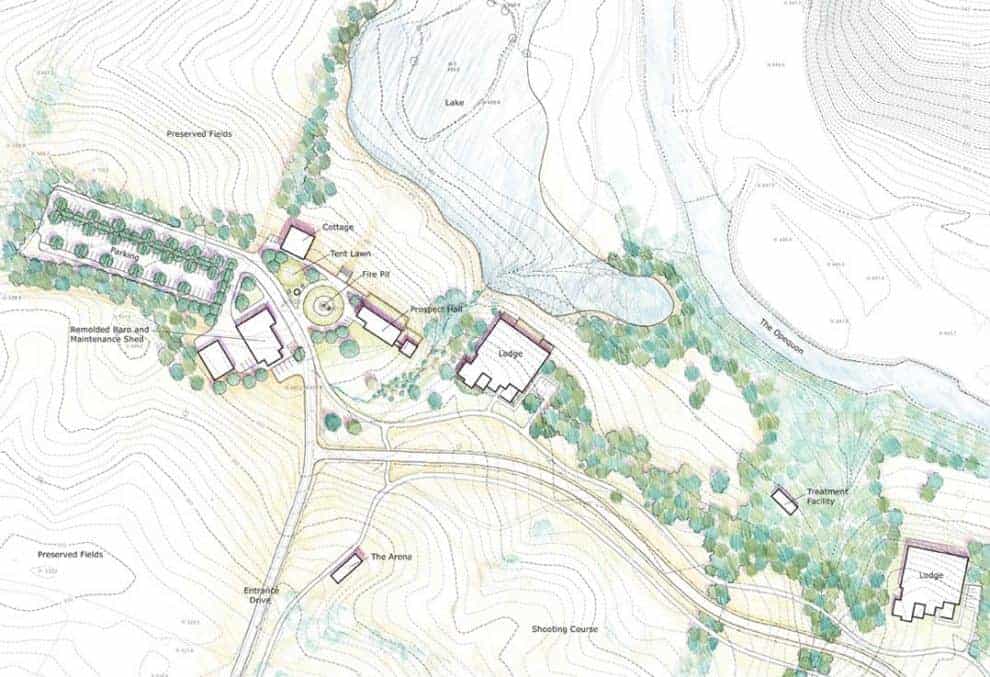A master plan is the key to a fully functional property, a way of looking at your land as a whole, visualizing the relationships between various elements, and ultimately understanding how to realize its full potential. A conscientious and comprehensive planning effort is vital to your property’s long-term environmental and economic success.
Why should you plan?
Based on a careful landscape inventory and analysis of the land coupled with a well-thought-out concept for the desired development or conservation program, a properly conceived master plan will illustrate all existing land uses and improvements and new programmatic elements as defined during the planning process. This design document will serve as a tool for the orderly and systematic implementation of short and long-term improvements to the land.
Know your property?
Before a master plan can be designed, a careful inventory of the land’s physiographic and man-made features takes into consideration the opportunities and constraints on your property. These may be determined by slope/terrain, soils, surface and subsurface hydrology, forest, wetland and vegetative cover, wildlife habitat, visual quality and other factors.
When is the best time to master plan a property?
The best time to prepare a master plan is before you initiate any changes that could potentially cost you more money in the long run. When utilizing a master plan, improvements on the property will not have to be undone in a few years to satisfy unforeseen needs. A construction phasing plan may also be valuable in outlining when certain property improvements will be designed in detail and implemented. Aside from your specific objectives, the phasing plan may include cost analyses and projections and consideration of factors such as budget, schedules, season, entitlements, maintenance and other issues.
What is your vision in 5, 10, 20 years?
Even if you are content with your property today, your needs will most likely change over time. A land planner will focus on what is important to you and your family and will help you organize the work so it is manageable and best fits your objectives, time frame and budget. Remember, your master plan is flexible. Reviewing it periodically will ensure that it still meets your goals. In preparing your master plan, you should work with a firm which has a wealth of expertise and a history of successful projects in this field that can help guide this planning process to best suit your objectives.
This content may not be used or reproduced in any manner whatsoever, in part or in whole, without written permission of LANDTHINK. Use of this content without permission is a violation of federal copyright law. The articles, posts, comments, opinions and information provided by LANDTHINK are for informational and research purposes only and DOES NOT substitute or coincide with the advice of an attorney, accountant, real estate broker or any other licensed real estate professional. LANDTHINK strongly advises visitors and readers to seek their own professional guidance and advice related to buying, investing in or selling real estate.










I really appreciated the insight you gave on how to develop a quality long-term plan for your land development. That being said, I liked that you suggested that it’s important to know your property. As you say, you have to know the inventory of the land’s features before you can actually start planning. Thus, I can see how hiring surveyors and contractors to help you get to know the land better is super beneficial so that you can make the best decisions and plans for your project. Thank you for sharing!